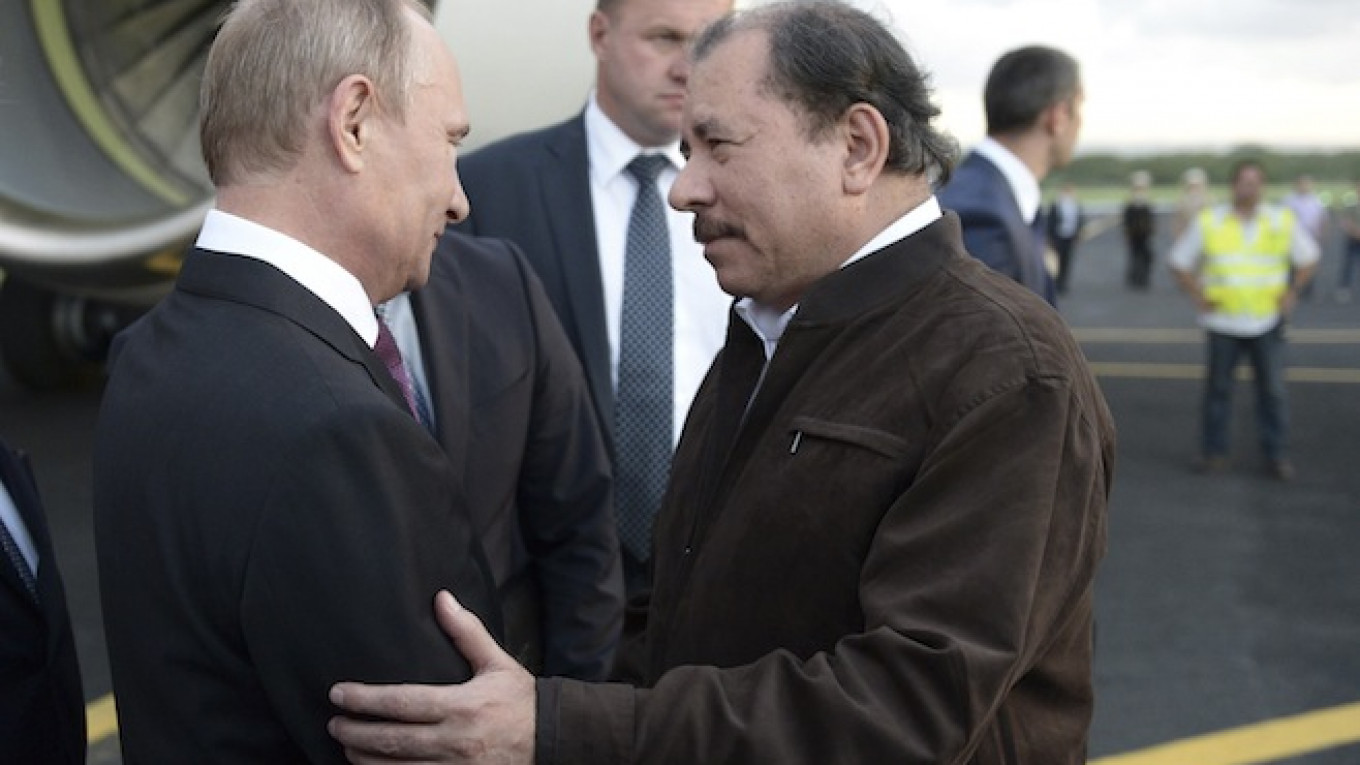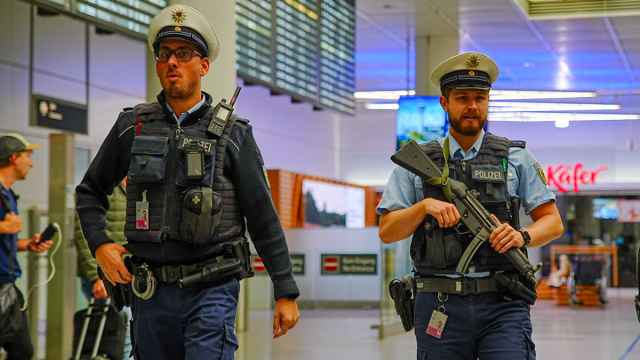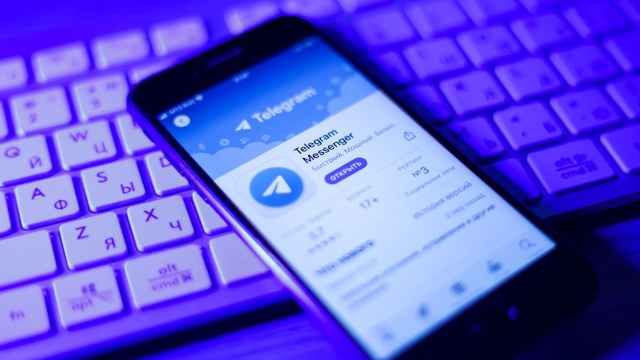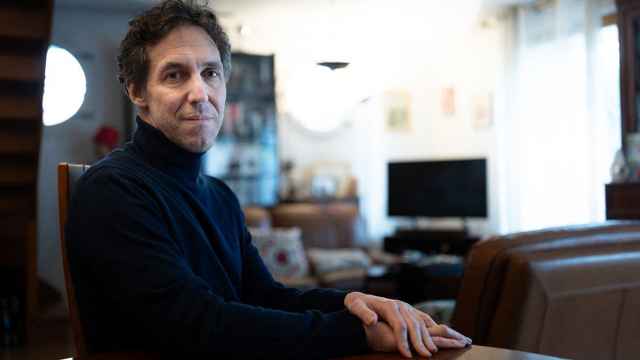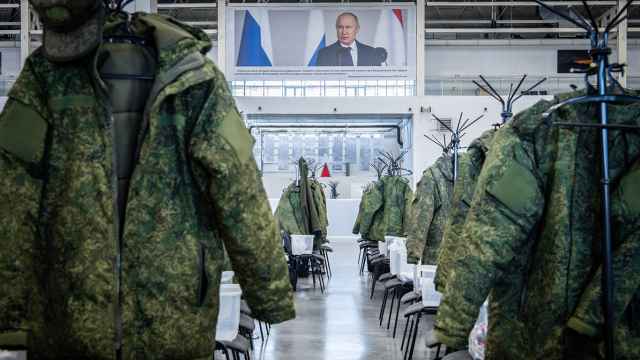President Vladimir Putin visited three Latin American countries over the weekend in a whirlwind tour aimed at demonstrating Moscow's resilience as an international power despite Western attempts at isolation stemming from the Ukraine crisis.
Putin began his trip with visits to Cuba and Argentina, before traveling on to Brazil in time for the World Cup Final on Sunday. He signed a range of deals along the way, including agreements to establish Glonass positioning stations in each country, as well as a nuclear power plant development deal with Argentina.
Although the visit to what for strategic purposes is broadly viewed as the U.S.'s backyard was planned prior to Kiev's regime change, analysts see the trip as a geopolitical move in the context of the ongoing conflict in Ukraine.
Vladimir Davydov, director of the Russian Academy of Sciences' Latin America Institute, told The Moscow Times on Sunday that the trip illustrates the point that while Russia is more than simply a regional power, it is not striving to become a global superpower.
"Russia wants to counterbalance the U.S., but it wants to do so together with China and other BRICS countries. Russia positions itself as a separate pole of power, but not as a single alternative," he said in a phone interview.
Dmitry Trenin, director of the Moscow Carnegie Center tweeted on Thursday that Putin's goal in Latin America was to demonstrate that "Russia is not a regional power." Having been excluded from the Group of Eight, Russia has shifted its focus to BRICS, he added, noting that the trip further proves that Russia has friends among the U.S.'s neighbors.
Following Russia's annexation of Crimea, U.S. President Barack Obama caused an uproar among pundits by labeling Russia a "regional power."
"Russia is a regional power that is threatening some of its immediate neighbors — not out of strength but out of weakness," he said at a news conference in The Hague in late March.
Putin's Visit a "Ray of Light"
All of the countries on Putin's Latin American itinerary abstained from voting in March on a United Nations resolution condemning Russia's annexation of Crimea.
On Saturday Putin also made a unscheduled stopover in Nicaragua, one of eleven countries that rejected the resolution altogether. The small Central American state is also one of the few that, like Russia, have recognized independence of South Ossetia and Abkhazia.
Putin met with Nicaraguan President Daniel Ortega, who referred to Putin's arrival as a "historic visit."
"It is like a ray of light, like a flash of lightning. This is the first time a Russian president has visited Nicaragua," he told Putin in his opening remarks.
Defense Minister Sergei Shoigu said in February that Russia was in talks with Nicaragua, Venezuela and Cuba, among others, to allow its navy ships dock at their ports. That same month, Reuters reported that a Russian intelligence-gathering vessel had docked at a port in Havana.
Double Standards
During an official luncheon in Buenos Aires, Argentina's President Cristina Fernandez de Kirchner toasted to a "world without double standards," referring to the sanctions imposed by the U.S. and EU against Russia over the Ukraine crisis.
Putin noted Argentina's criticism of the sanctions and returned the favor by saying, "Russia, for its part, has invariably stood for resolving the dispute over the sovereignty of the Malvinas Islands by way of direct negotiations between Argentina and Britain."
Malvinas is the Spanish name for the Falkland Islands, which Argentina fought and lost a war with Britain over in 1982.
Putin also thanked Argentina for inviting the Spanish-language version of Russian state-owned international news channel RT to broadcast around the clock alongside the state-run channels, an honor never before bestowed on a foreign channel, according to RT.
World Cup and BRICS
On Sunday evening Putin arrived in Rio de Janeiro for the World Cup final, which will include a ceremony of passing hosting duties to Russia. Upon arriving, he discussed Ukraine with German Chancellor Angela Merkel who came to support her country's bid to win its fourth World Cup.
Ukraine's President Petro Poroshenko had initially been slated to attend, but decided to refrain, citing the ongoing armed conflict in his country.
Over the next three days Putin will conduct talks with Brazilian President Dilma Rousseff, and meet with his other counterparts from China, India and South Africa in the framework of the BRICS summit in the cities of Fortaleza and Brasilia.
See also:
Russia Looks Ahead to 2018 World Cup
Contact the author at [email protected]
A Message from The Moscow Times:
Dear readers,
We are facing unprecedented challenges. Russia's Prosecutor General's Office has designated The Moscow Times as an "undesirable" organization, criminalizing our work and putting our staff at risk of prosecution. This follows our earlier unjust labeling as a "foreign agent."
These actions are direct attempts to silence independent journalism in Russia. The authorities claim our work "discredits the decisions of the Russian leadership." We see things differently: we strive to provide accurate, unbiased reporting on Russia.
We, the journalists of The Moscow Times, refuse to be silenced. But to continue our work, we need your help.
Your support, no matter how small, makes a world of difference. If you can, please support us monthly starting from just $2. It's quick to set up, and every contribution makes a significant impact.
By supporting The Moscow Times, you're defending open, independent journalism in the face of repression. Thank you for standing with us.
Remind me later.


